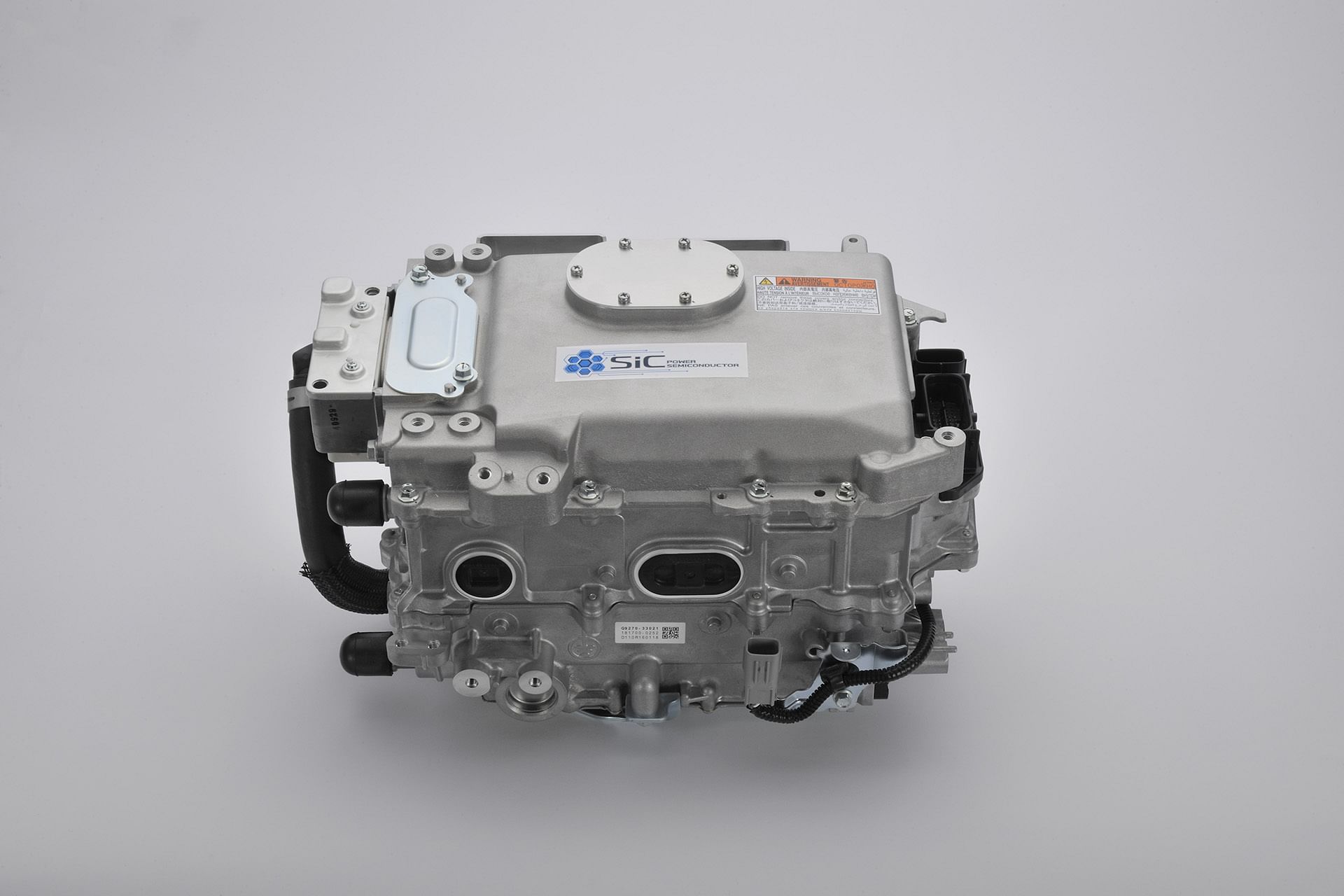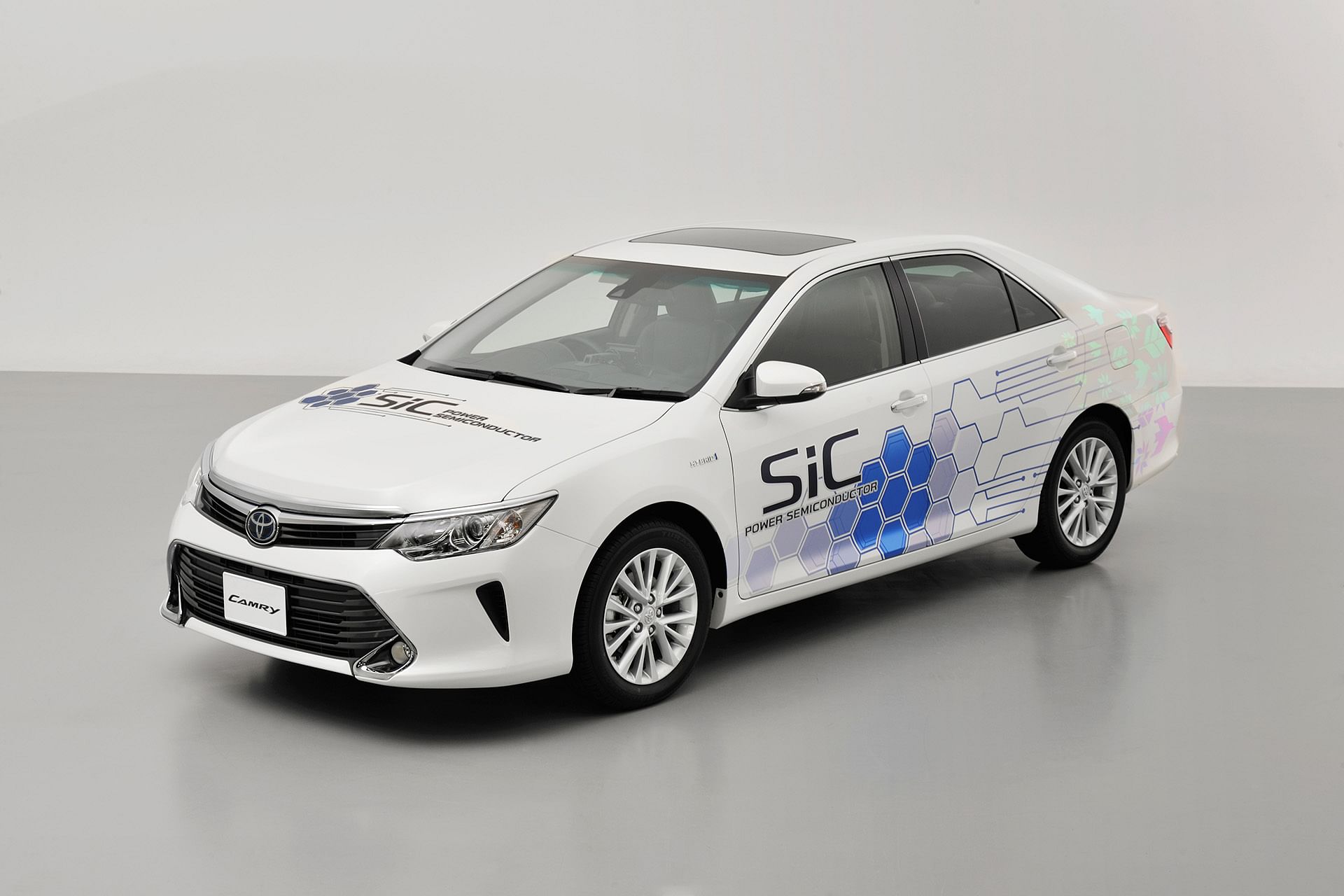Toyota to trial New SiC Power Semiconductor Technology
The data from testing will be reflected in development, with the goal of putting the new SiC power semiconductors into practical use as soon as possible.
Using a "Camry" hybrid prototype and a fuel cell bus, Toyota Motor Corporation will bring a new technology to the streets of Japan for testing this year. The tests will evaluate the performance of silicon carbide (SiC) power semiconductors, which could lead to significant efficiency improvements in hybrids and other vehicles with electric powertrains.

Technology
Power semiconductors are found in power control units (PCUs), which are used to control motor drive power in hybrids and other vehicles with electric powertrains. PCUs play a crucial role in the use of electricity, supplying battery power to the motors during operation and recharging the battery using energy recovered during deceleration.
At present, power semiconductors account for approximately 20 percent of a vehicle's total electrical losses, meaning that raising the efficiency of the power semiconductors is a promising way to increase powertrain efficiency.
By comparison with existing silicon power semiconductors, the newly developed high quality silicon carbide (SiC) power semiconductors create less resistance when electricity flows through them. The technologies behind these SiC power semiconductors were developed jointly by Toyota, Denso Corporation, and Toyota Central R&D Labs., Inc. as part of the results of a broader R&D project in Japan.

Test vehicles and period
In the Camry hybrid prototype, Toyota is installing SiC power semiconductors (transistors and diodes) in the PCU's internal voltage step-up converter and the inverter that controls the motor. Data gathered will include PCU voltage and current as well as driving speeds, driving patterns, and conditions such as outside temperature. By comparing this information with data from silicon semiconductors currently in use, Toyota will assess the improvement to efficiency achieved by the new SiC power semiconductors. Road testing of the Camry prototype will begin (primarily in Toyota City) in early February 2015, and will continue for about one year.
Similarly, on January 9, 2015, Toyota began collecting operating data from a fuel cell bus currently in regular commercial operation in Toyota City. The bus features SiC diodes in the fuel cell voltage step-up converter, which is used to control the voltage of electricity from the fuel cell stack.
Data from testing will be reflected in development, with the goal of putting the new SiC power semiconductors into practical use as soon as possible.
RELATED ARTICLES
Autoliv Plans JV for Advanced Safety Electronics With China’s HSAE
The new joint venture, which is to be located strategically near Shanghai and close to several existing Autoliv sites in...
JLR to Restart Production Over a Month After September Hacking
Manufacturing operations at the Tata Group-owned British luxury car and SUV manufacturer were shut down following a cybe...
BYD UK Sales Jump 880% in September to 11,271 units
Sales record sets the UK apart as the largest international market for BYD outside of China for the first time. The Seal...






 By Autocar Professional Bureau
By Autocar Professional Bureau
 29 Jan 2015
29 Jan 2015
 3471 Views
3471 Views





 Ajit Dalvi
Ajit Dalvi




